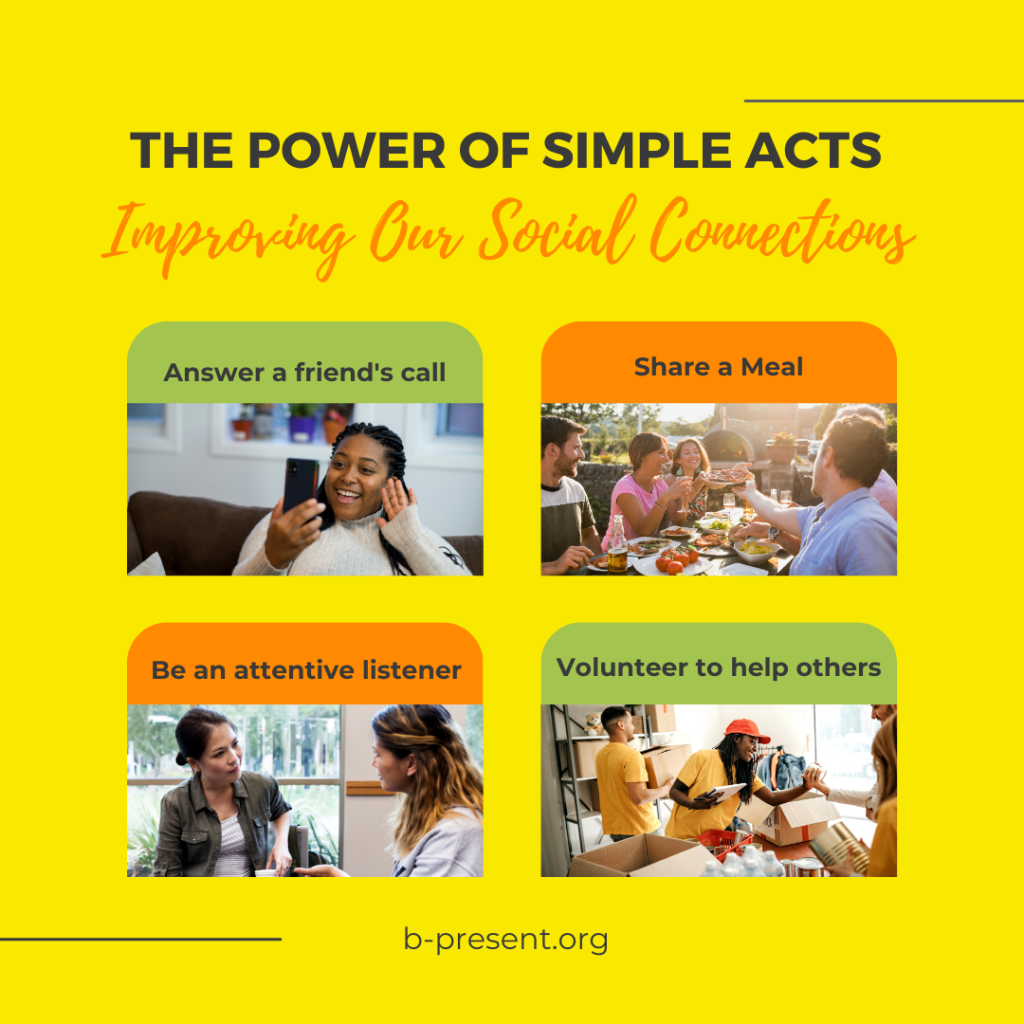
The Impact of Loneliness and the Magic of Connection
Ever felt like you’re swimming in a sea of emojis and Snapchat filters, yet still missing out on genuine connections? It’s like we’re all plugged in, yet somehow, we’re feeling disconnected. In this digital age, it’s weirdly common to feel super alone. Loneliness isn’t just a feeling; it’s a big deal affecting our health in real ways. It’s a puzzle we need to solve with care and understanding.
The Health Risks of Loneliness
First off, know that loneliness is more than a quick mood. It’s feeling cut off from others, from a little lonely to super isolated. And this isn’t just bad for individuals – it messes with society too.
New studies show loneliness is really bad news for our health. It can make your heart, brain, and mood all go haywire. We’re talking heart disease, memory problems, feeling down, stressed out, and even early mortality. To put it bluntly, being really lonely can be as harmful as smoking 15 cigarettes every day. Yep, it’s that serious.
Loneliness is Everywhere
What’s really wild is that loads of adults in the U.S. feel lonely – about half of them. And it’s not just a thing for certain people or ages. Loneliness doesn’t pick favorites. It can hit anyone.
Why Social Connection Matters
We humans are social creatures. We need friends and connections as much as we need food and sleep. It affects our minds and bodies, how we do in school or work, and even how we fit into our communities.
Loneliness is now a public health concern. Even the Surgeon General is waving the ‘let’s-connect’ flag, showing how serious loneliness is and giving tips on how to avoid it. He went on a nationwide tour and stumbled upon the harsh reality of social disconnection affecting people from all walks of life.
It’s high time we treat loneliness like the health threat it is, just like we tackle smoking or obesity. Dr. Murthy challenges us to strip away the stigma around loneliness and rethink how we respond to it culturally and on a policy level. Everyone – you, me, our communities – has a role in strengthening relationships and building a more connected world.

The Power of Simple Acts
While the problem might sound complex, the solutions can be straightforward. Connection doesn’t always mean grand gestures. Sometimes, the most impactful acts are simple:
- Answering a call from a friend.
- Sharing a meal with someone.
- Being present and attentive during conversations.
- Seeking opportunities to serve and help others.
These small steps have the potential to bring about monumental change in our lives and those around us. Strengthening connections can make your mind happier, your heart and brain healthier, and even lower the risk of health issues like diabetes or high blood pressure.
The Struggle is Real
We get it – life can sometimes feel like a solo gig in a crowded stadium. You’re not alone in that feeling. But tackling loneliness isn’t just about swiping left or right. In episode 39 of The Struggle is Real with Justin Peters podcast, Michael Bauman, a Loneliness Entrepreneur Coach and Host of the Success Engineering podcast, uncovers the secrets to building strong relationships and making genuine connections that truly matter.
The conversation takes a deep dive into the importance of emotional intelligence and the art of expressing feelings in healthy ways. Drawing from personal experiences, Michael highlights the magic of empathy and vulnerability, showing how these ingredients can help forge deep, meaningful bonds.
Loneliness Among Cancer Survivors: The Crucial Role of Social Support
New findings reveal the huge impact loneliness has on those who’ve triumphed over cancer. Experts say that feeling alone might actually make it tougher for survivors to stay healthy. Science shows that being lonely can mess with your mood, make you do things that aren’t good for you, and even mess with your body’s defenses – all of which might drag down your overall health.
If you’re alone in your cancer experience, you might not get the right care, support, and comfort for your symptoms. That’s why having friends and connections during hard times is a big deal.
Building a Support Squad and Curbing Loneliness after Cancer
The new research on cancer survivors and loneliness is like a wake-up call for all of us. Similar to Michael Bauman’s insights on forging authentic connections, the study highlights the significance of community, empathy, and shared experiences. Just as parents are encouraged to create nurturing environments for their children, caregivers, family, and friends are urged to support cancer survivors through treatment and beyond.
Making time for others and developing healthy habits
A study by Duke University found that nearly 40% of our day consists of unconscious habits– doing things we don’t even think about! Imagine what a difference we could make in our lives if we created healthy habits around happiness, stress management, social connections and overall well-being. Combining healthy unconscious habits, with consciously scheduling time for important social relationships, like regular meetups, whether in person or virtually, can go a long way in helping us reduce the busyness that often keeps us apart and stay more consistent with our connections. Two great resources include “Tiny Habits” by BJ Fogg and “Atomic Habits” by James Clear can help you get started on identifying and including healthy habits in our daily routines.
Learn more about supporting a friend:
- Learn how to b-there for your friend with cancer
- Read our blog: Social Isolation After a Cancer Diagnosis: How to be Supportive
- Read the U.S. Surgeon General’s Advisory on Our Epidemic of Isolation and Loneliness
- Download the Supporter Roadmap
- Follow us on Instagram
- Learn more about the b-present Foundation
- Check out other episodes of The Struggle is Real podcast with Justin Peters
